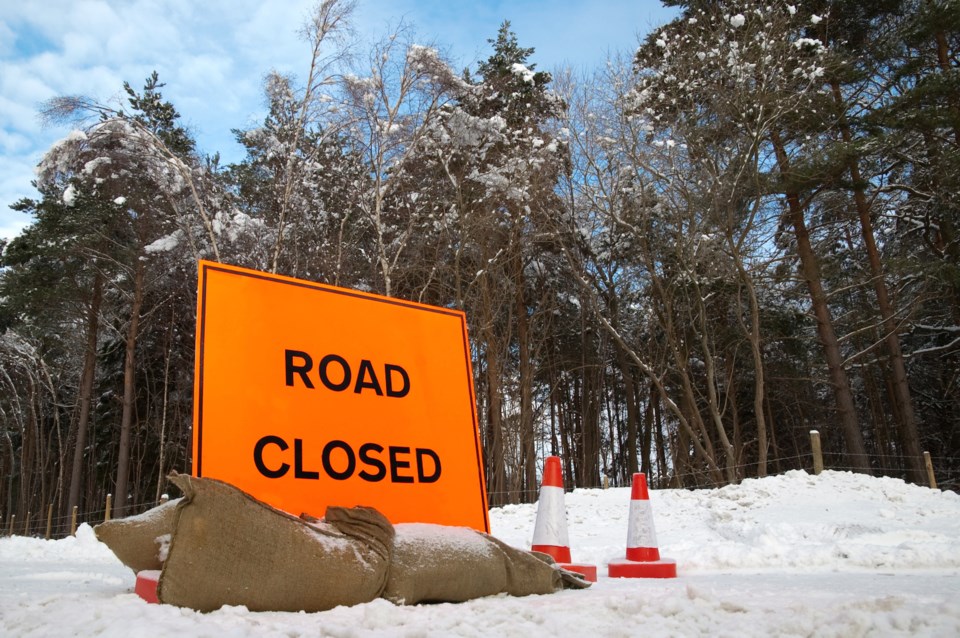NEWS RELEASE
NEORN
*************************
Northerners who travel great distances in the winter months have experienced a significant number of transportation related delays & inconveniences to close out 2016.
Over a seven week period, motorists encountered a total of 90 closures or blockages due to automobile or weather related incidents in the region.
On November 24, Highway 11, one of Northern Ontario’s primary roadways, was closed for nearly 24 hours due to a transport truck collision near Tonomo Lake Road, near the community of Marten River.
Residents along this corridor between North Bay and Temiskaming Shores were left stranded, as the province could not provide a detour or an alternative mode of transportation to circumvent the incident.
A week before the Holidays in December, Highway 17 was closed repeatedly over a four day period due to poor weather, blockages or collisions between the communities of Wawa, Sault Ste. Marie and Blind River.
According to the Ministry of Transportation’s #511ONNortheast Twitter feed, the Trans-Canada highway was shut down on 16 separate occasions. Detours were either not an option or simply non-existent.
Around the same time period, commercial air travelers were affected by delays or unexpected layovers due to a fuel shortage at the Victor M. Power Airport in Timmins.
Finally, one day after the arrival of 2017, a motor vehicle accident involving a propane truck near Gogama resulted in a 28 hour closure of Highway 144, the only road linking the cities of Greater Sudbury and Timmins.
Too many highway closures, too few alternativesThese incidents, among others, are a clear demonstration of the gaps that exist within the Northern Ontario transportation network, and the need to reinstate passenger train services in the region.
Within the last month, the province introduced weekend GO Train service between Barrie and Toronto, as well as extension of the Richmond Hill GO Train to the Town of Gormley.
Meanwhile in Northern Ontario, families, seniors and students are forced to endure the inevitable consequences from frequent highway closures and the lack of transportation alternatives readily accessible to many Southern Ontarians.
Residents of Sault Ste. Marie and the North Shore of Lake Huron are con ned to one scheduled Eastbound and Westbound motor coach run to and from Sudbury.
As a result, there are instances where Northerners are left stranded due to a limited supply of unreserved seating on the bus. Additionally, for the second time in three years, public transportation between the communities of Hearst and Longlac has been suspended indefinitely.
The province indicates in its latest discussion paper for the Northern Ontario Multimodal Transportation Study (NOMTS) that it wishes to improve long distance, regional and local intercommunity bus services.
Yet, the province’s highway infrastructure in Northern Ontario is incapable of, or is far too vulnerable and unreliable to deliver on this recommendation in the event of closures, weather related incidents or natural disasters.
It is with irony that the region’s adjacent rail lines, which have proven to be time and again a safe and reliable mode of transportation for people and goods elsewhere in the province and country, remain underutilized or idle along the Northern Ontario Trans-Canada highways corridors.
The Federal Government refuses to fund and reinstate the Algoma Central passenger rail service, while Queen’s Park resists to the need to revive the Northlander passenger train.
*************************
